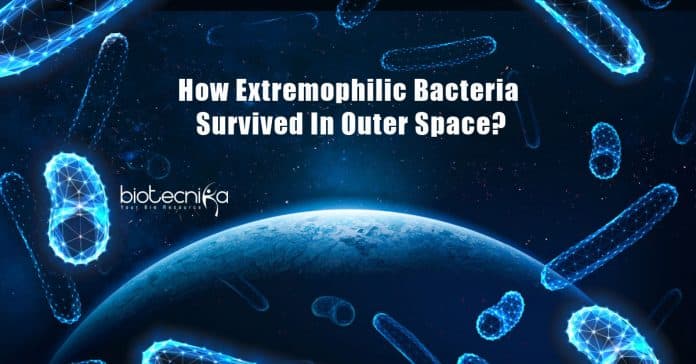Extremophiles Survive Drastic Influence Of Outer Space
Researchers examined how the space-surviving microorganism can actually sustain the transfer from one celestial body to another when exposed to temperature changes, extreme vacuum, and Galactic cosmic and solar UV radiation survive in space.
Because of the advent of space research, humanity has been captivated by the endurance of terrestrial life in outer space. Outer space is a hostile atmosphere for any life, yet few extremely resistant microbes can sustain. Underlying the panspermia theory or interplanetary transfer of life, these microbes may move between planets and disperse life across the universe.
Deinococcus radiodurans – an extremely resistant microbe endures against outer space’s extreme impact: temperature changes, microgravity, galactic cosmic and solar UV radiation, freezing, extreme vacuum, and desiccation. Current research analyzed the impact of outer space on this special microorganism on a molecular level. Studies discovered that Deinococcus radiodurans escaped morphological damages and generated several external membrane layer vesicles after one year of exposure to low earth orbit outside the ISS during the Tanpopo space Mission.
A diverse protein and genomic responses were started to relieve cell stress, assisting the microorganisms in repairing DNA damages and protecting against reactive oxygen species. In response
to space exposure, the processes underlying transport and energy status were modified. During regeneration from space exposure, Deinococcus radiodurans utilized polyamine putrescine – primordial stress molecule as a reactive oxygen species scavenger.Tetyana Milojevic, head of Space Biochemistry group, University of Vienna and a corresponding author of the study stated that these studies assist us to comprehend the mechanisms as well as processes through which life can exist past beyond, broadening our understanding of how to sustain and adjust in the adverse conditions of outer space. The outcomes propose that survival of Deinococcus radiodurans in low earth orbit for a more prolonged period is feasible because of its effective molecular response system and mean that even longer, further travels are possible for organisms with such abilities.
The studies acknowledged the question – to which extend and how extremely resistant microorganisms can withstand extreme space environments.
Extremophiles Survive Drastic Influence Of Outer Space
































